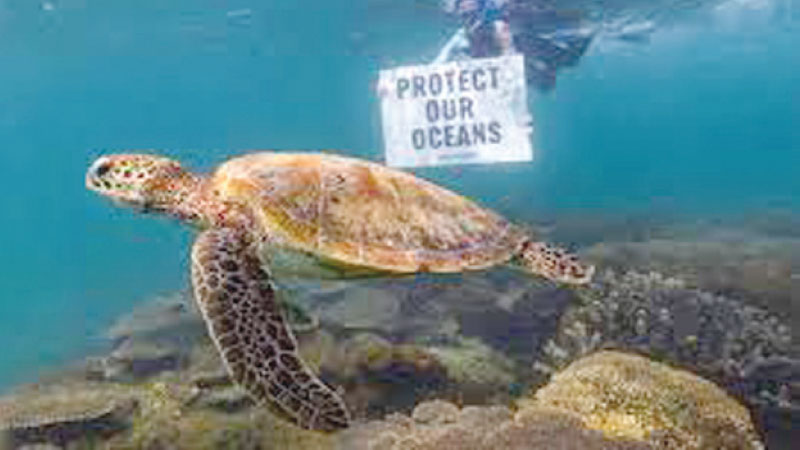Greenpeace Southeast Asia, the regional office of the global environmental organisation, Greenpeace, has called on President Anura Kumara Dissanayake to take steps for Sri Lanka to ratify the Global Ocean Treaty to safeguard ocean biodiversity, support climate change mitigation and the future of the next generations.
Greenpeace South Asia Campaigner in Sri Lanka Anita Perera said that India, Bangladesh and the Maldives have taken historic steps to ratify the globe ocean treaty and Sri Lanka too should follow suit rather than being left out.
“This request was done on many occasions but it was not heeded by the then political leadership and Greenpeace Southeast Asia expects President Dissanayake to take a lead in joining this initiative.”
“While most other South Asian countries are committing to Ocean protection, it is important that Sri Lanka, as an island nation, also steps in. The country has just chosen a new President and we urge him to join this positive dynamic in favor of our ocean and climate.”
Campaign Manager at Greenpeace South Asia, Avinash Chanchal, said, “India, the Maldives and Bangladesh have shown international leadership for marine biodiversity conservation as this new Treaty will allow the creation of large protected areas on the High Seas, beyond 200 nautical miles (or 370 kilometers) from the coastlines.”
“Such large sanctuaries on the High Seas will allow the recovery of marine life, increase its resilience to climate change, and support the livelihoods of millions of people in the region.”
The Global Ocean Treaty, adopted in June 2023, will enter into force when at least 60 governments have
written it into their national law and only thirteen countries have completed the ratification process.
“India and other South Asian countries now need to prioritise ratification of the Global Ocean Treaty and step forward as a regional driving force to implement bold measures for biodiversity protection and climate change mitigation”, said Chanchal.
This year, the wider South Asia region has again suffered from extreme weather events causing too many casualties, meanwhile industrial overfishing, pollution and climate change impacts, such as rising sea levels and temperature, are dramatically affecting coastal fisheries and livelihoods.
Oceans and Climate are connected and supporting one another. Government leaders need to understand it and start protecting ecosystems that can best mitigate climate change and secure a sustainable future for all.






